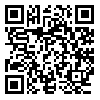Volume 11, Issue 41 (fall 2007)
2007, 11(41): 177-189 |
Back to browse issues page
Download citation:
BibTeX | RIS | EndNote | Medlars | ProCite | Reference Manager | RefWorks
Send citation to:



BibTeX | RIS | EndNote | Medlars | ProCite | Reference Manager | RefWorks
Send citation to:
M. M. Majidi, A.F. Mirlohi, M.R. Sabzalian. Path Coefficient Analysis of Fescue Seed Yield and its Components Affected by Fungal Endophyte. Journal of Crop Production and Processing 2007; 11 (41) :177-189
URL: http://jcpp.iut.ac.ir/article-1-736-en.html
URL: http://jcpp.iut.ac.ir/article-1-736-en.html
Abstract: (27238 Views)
Fescues (Festuca spp) are widely distributed in the temperate regions and are used for turf, forage and soil conservation. Though seed traits are important measures of the effects of endophytic fungi on their host, little information is available in this respect for Festuca. In this study, endophyte-infected (E+) and endophyte-free (E-) clones of the six fescue genotypes were used to investigate the effects of endophyte on seed production. The relationships between seed traits plus direct and indirect effects of components on seed yield were also studied. Endophyte infection resulted in 38.1% to 249% more seed yields in some genotypes, though some were not affected by this symbiotic relationship. Correlations between traits and also results of stepwise regression were influenced by the presence of the symbiotic fungi. Path analysis showed that endophytic fungi changed direct and indirect effects of components on seed yield. In endophyte containing clones, panicle fertility had the most direct effects and number of panicle per plant and seed per panicle the most indirect effects on seed yield. In E- clones, panicle fertility had the highest indirect effects and other components had direct effects on seed yield. The results suggested that breeding strategies for increasing seed yield in fescue should consider the presence or absence of endophyte in germplasm.
| Rights and permissions | |
 | This work is licensed under a Creative Commons Attribution-NonCommercial 4.0 International License. |






